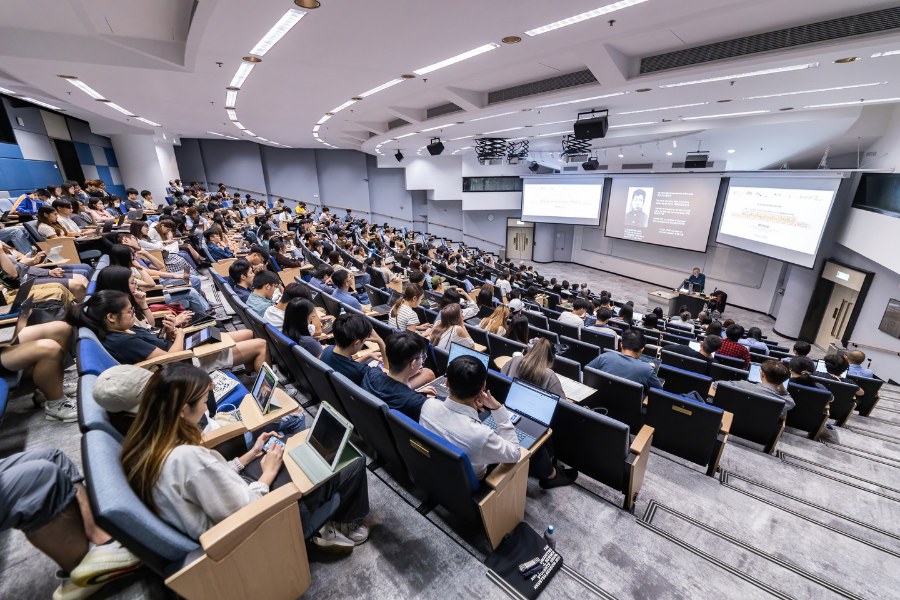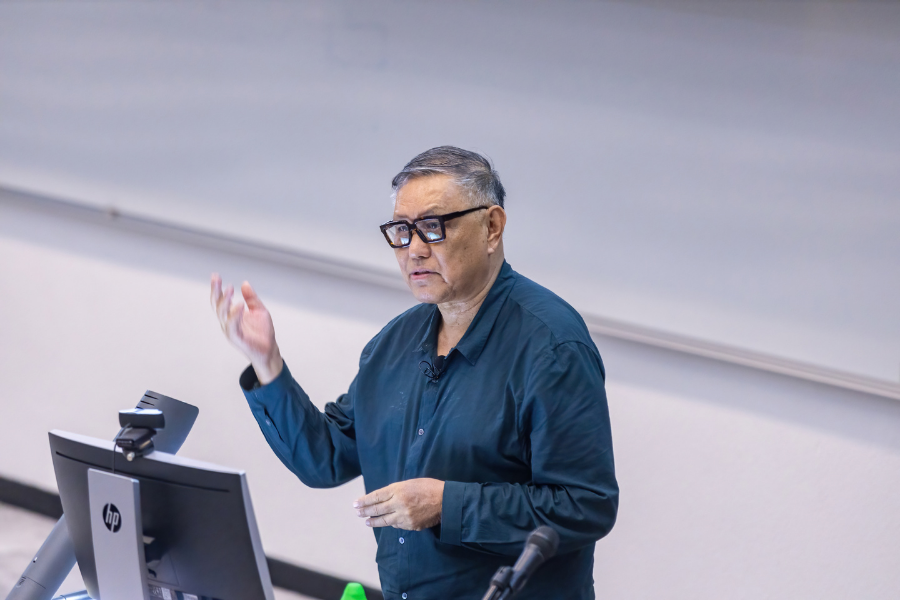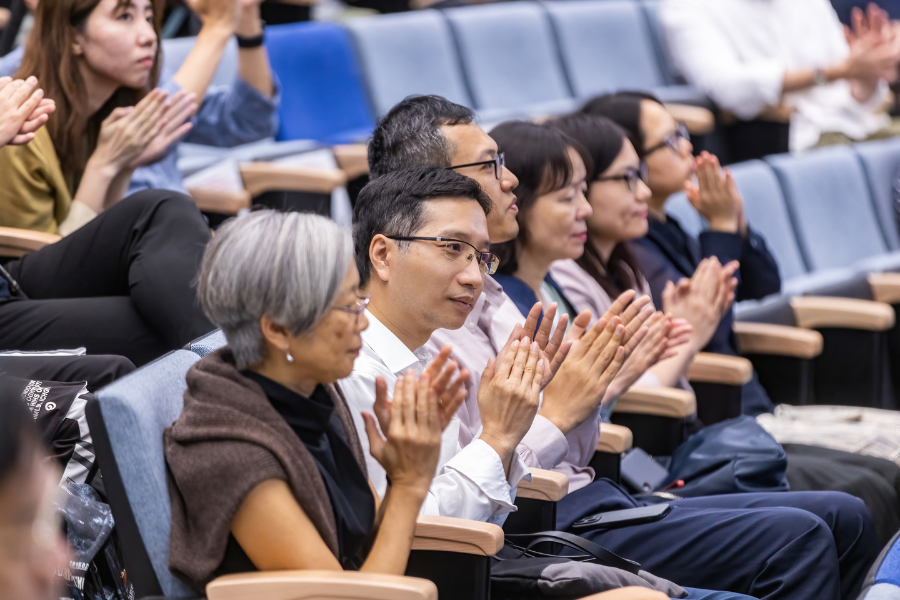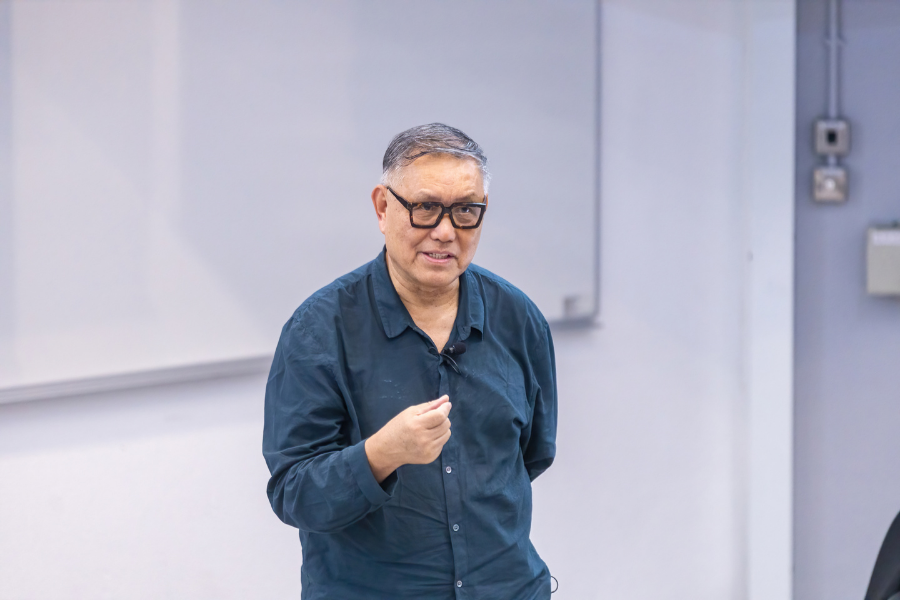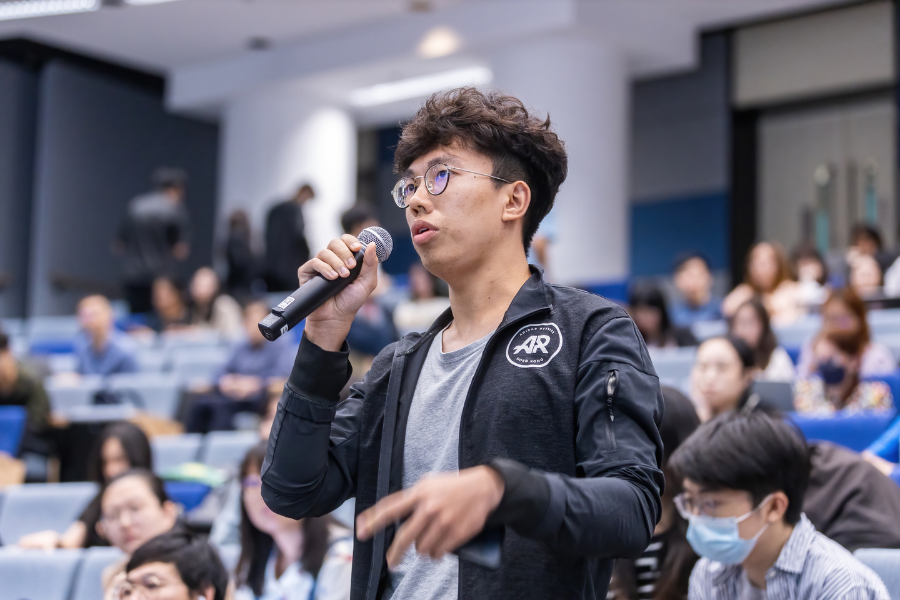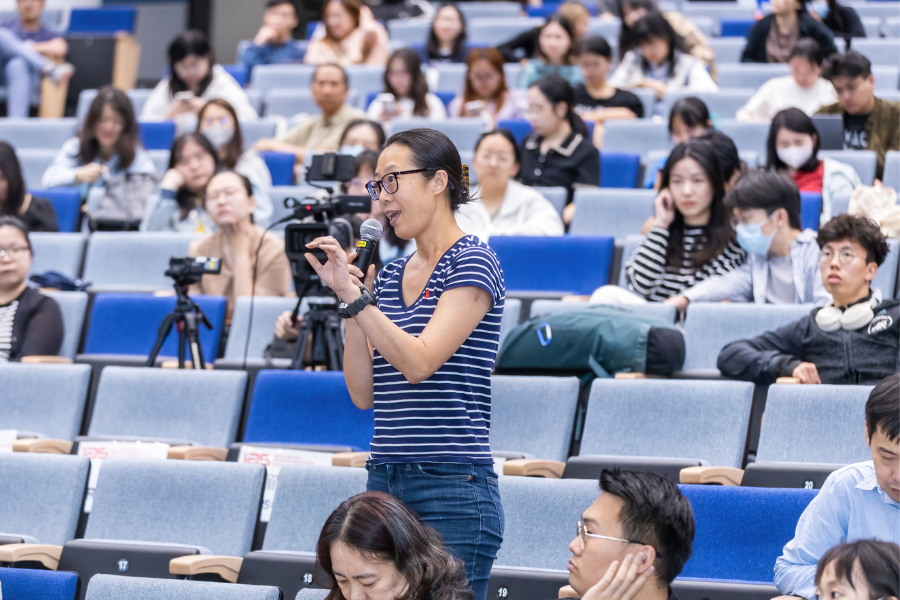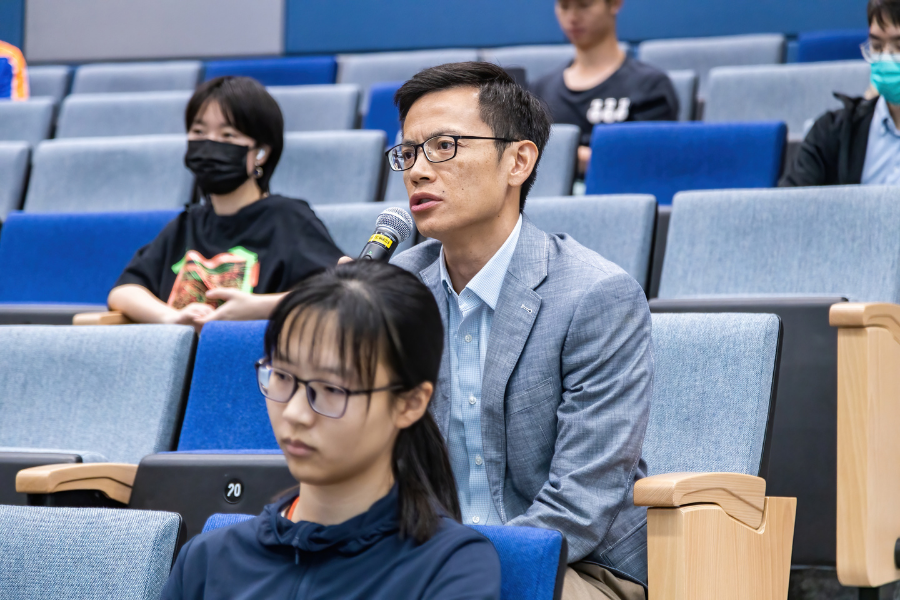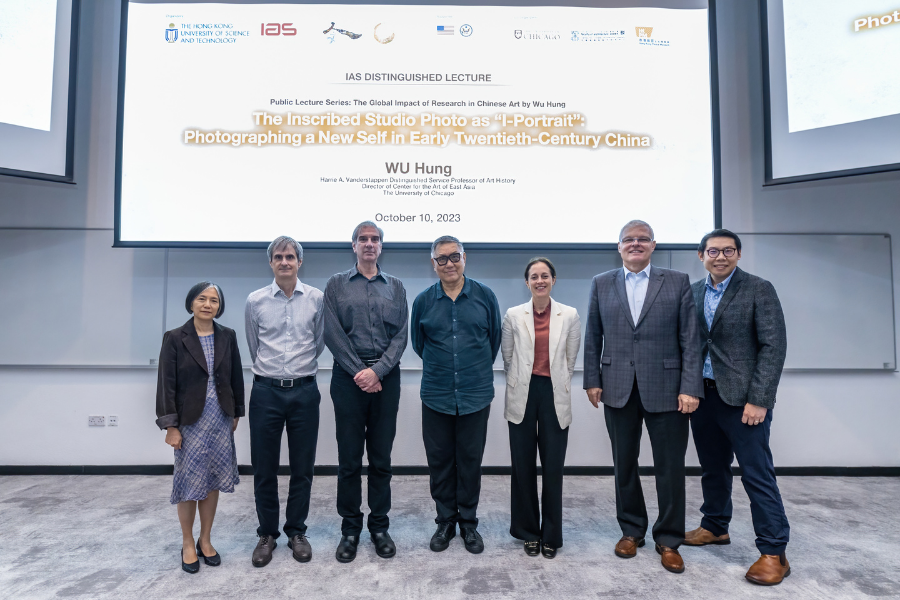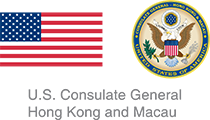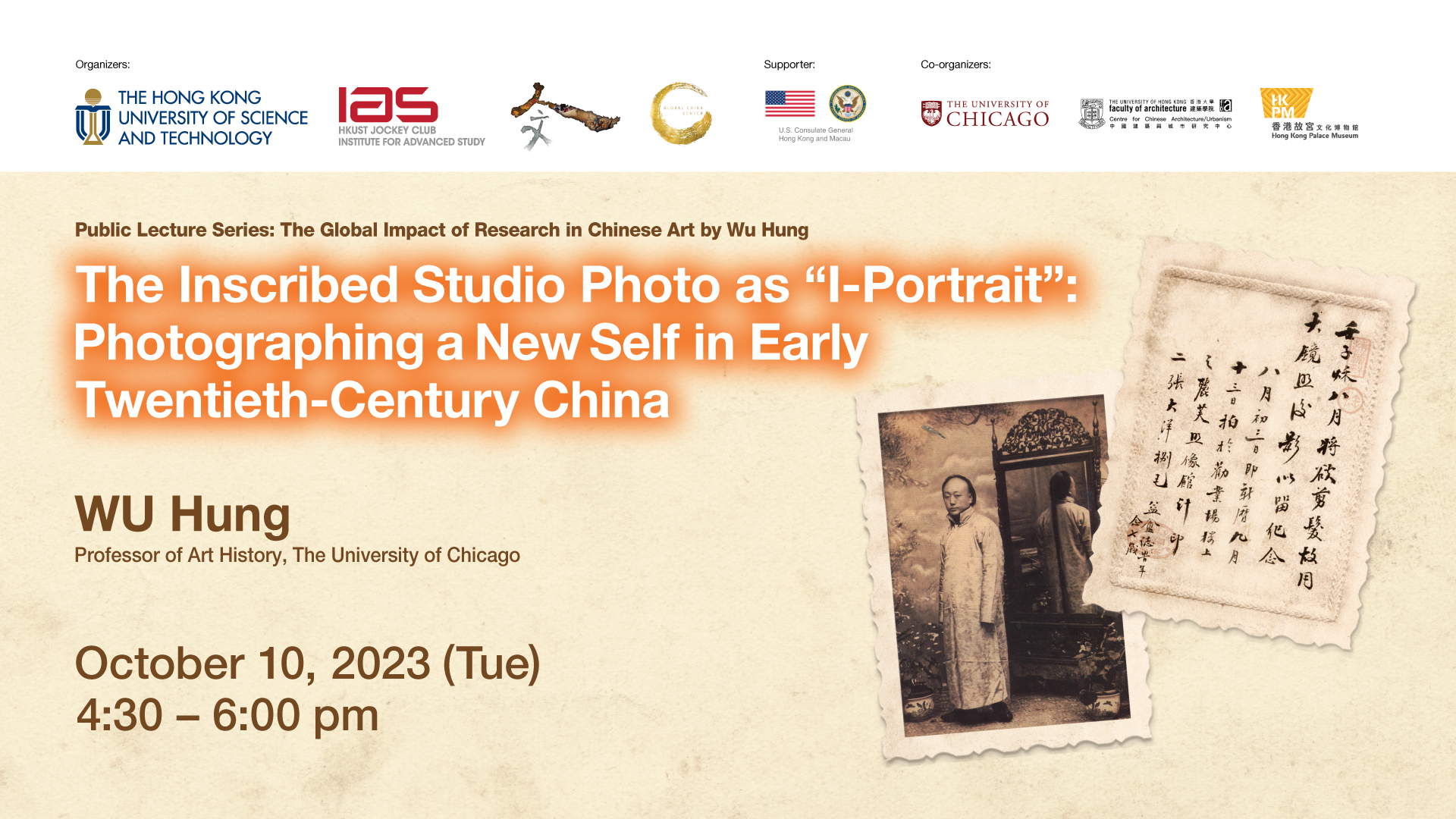The Inscribed Studio Photo as “I-Portrait”: Photographing a New Self in Early Twentieth-Century China
Abstract
Portraiture and self-portraiture are two standard genres in visual art, including photography. A self-portrait is a likeness whose subject is the artist him/herself; a portrait is a representation of a person made by someone else. This lecture investigates some photographs which disrupt this seemingly self-evident classification of images. These examples belong to a group of studio portraits that bear the sitters’ inscriptions. The speaker suggests that when an inscription is imbued with a distinct “I” voice and expresses the sitter’s personal experience and aspiration, it transforms the anonymous portrait into an I-portrait. The main part of the talk discusses several images related to the “queue-cutting” movement in early twentieth-century China, before and after the Republican Revolution in 1911 that ended the country’s dynastic history. The final section contemplates how photography’s media specificity contributes to such transformation.
This lecture is part of the Public Lecture Series: The Global Impact of Research in Chinese Art by Wu Hung organized by the Division of Humanities, Global China Center and the Institute of Advanced Study of HKUST. The Public Lecture Series is co-organized with the University of Hong Kong, the University of Chicago Francis and Rose Yuen Campus in Hong Kong and Hong Kong Palace Museum.
About the Speaker
WU Hung holds the Harrie A. Vanderstappen Distinguished Service Professorship at the Department of Art History and the Department of East Asian Languages and Civilizations at the University of Chicago, and is also the director of the Center for the Art of East Asia at the same university. An elected member of the American Academy of Art and Science and the American Philosophic Society, he sits on multiple domestic and international committees. He has received many awards for his publications and academic services, including the Distinguished Teaching Award (2008) and Distinguished Scholar Award (2018) from the College of Art Association (CAA), an Honorary Degree in Arts from Harvard University (2019), and the Distinguished Lifetime Achievement Award for Writing on Art from CAA (2022).
Wu Hung’s research interests include both traditional and contemporary Chinese art, and he has published many books and curated many exhibitions in these two fields. His interdisciplinary interest has led him to experiment with different ways to tell stories about Chinese art, as exemplified by his Monumentality in Early Chinese Art and Architecture (1995), The Double Screen: Medium and Representation of Chinese Pictorial Art (1996), Remaking Beijing: Tiananmen Square: the Creation of a Political Space (2005), The Art of the Yellow Springs: Understanding Chinese Tombs (2010), A Story of Ruins: Presence and Absence in Chinese Art and Visual Culture (2012), Zooming In: Histories of Photography in China (2016), and Space in Art History (2018). His three newest books from 2022 and 2023 include Chinese and Dynastic time (Princeton University Press), Spatial Dunhuang: Experiencing the Mogao Caves (Washington University Press), and The Full Length Mirror: A Global Visual History (Reaktion Books).
Supporter
The Public Lecture Series is generously supported by the U.S. Consulate General Hong Kong and Macau.
Registration
-
This lecture is free and open to the public. Prior registration is required.
-
Free admission. Tickets will be allocated on a first come, first served basis.
-
Attendee should register for himself/herself only. Attendee’s name, email address and cell phone numbers are required for registration.
-
For HKUST students who wish to attain for HUMA2660 or HUMA5620 courses, please input your HKUST email and student ID in the registration.
-
Successful registrant will receive a confirmation email with a PDF attachment of printable ticket(s) and QR code(s). Registrant must present the corresponding QR code for check-in at the reception on the day. Each QR code is unique and cannot be transferred to others.
-
No hourly parking or free parking will be provided to registrants. Please take public transportation to HKUST.
Please click here for registration.

